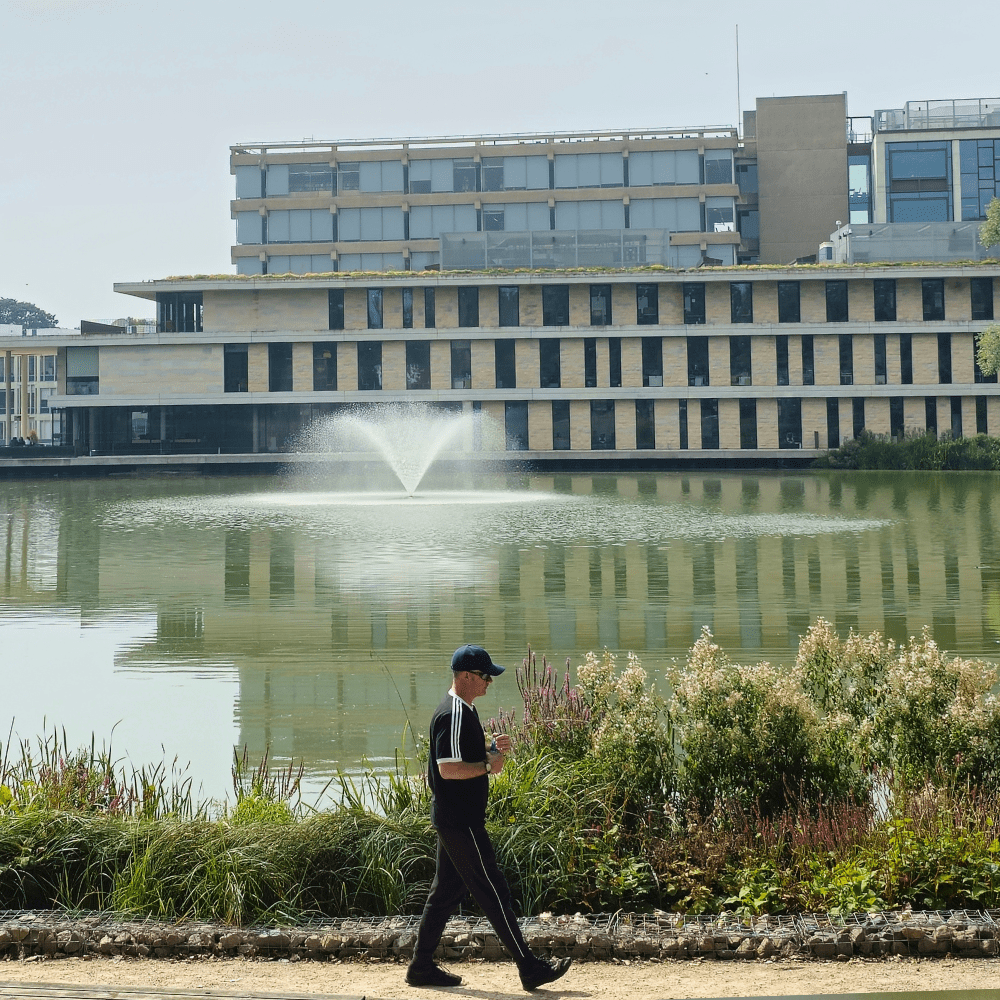Getting a degree in childhood studies
Are you considering a career working with children and young people? This degree can provide you with a unique opportunity to study the social and emotional worlds of children.
What is childhood studies?
Childhood studies is an innovative subject area that aims to understand and explain the experiences of children and childhood. The subject utilises several disciplines to interpret the experience of childhood, both historically and within contemporary society. This multidisciplinary approach includes:
History
Developmental psychology
Sociology
Anthropology
Psychoanalytic approaches
Childhood studies examines how childhood is a socially constructed concept, differing between cultures and generations. This subject area examines how changes in our shifting understanding of childhood can influence and shape the lives of children.
What is the difference between childhood studies and child psychology?
Childhood studies is concerned with understanding childhood as a social construct and lived experience, whereas child psychology is concerned with understanding the mechanics of child thought processes.
Comparing childhood studies degrees and child psychology degrees:
Childhood studies degrees examine the shifting social and historical experience of childhood using a multidisciplinary approach. Students will draw upon sociology, history, anthropology, psychoanalytic approaches and developmental psychology. The discipline aims to understand childhood as an ever-changing and socially constructed experience.
Child psychology degrees are concerned with the study of the psychological processes of children and seek to understand the mechanics of childhood thought and development. The discipline introduces students to an empirical and scientific approach. Students will compare and contrast children's cognitive processes in response to stimuli, other children, and adults.
Choosing between childhood studies or an early childhood studies degree:
Both are concerned with the social and historical experience of childhood. Early childhood studies degrees focus heavily upon the first eight years of a child's life. In comparison, a childhood studies degree will consider childhood within a broader social context, examining the distinctive challenges posed to children as they navigate society until the age of twenty-one.
The history of childhood studies:
The recent emergence of the discipline in the early 1990s could be viewed as a response to an increased need to understand the changing lives of children. As more young children enter childcare and early education, transitioning from care within their immediate families to group care settings has become a more pressing issue. Such developments make it even more vital to develop a multidisciplinary approach that can explain the changing institutional arrangements of care that children experience.
Why study childhood studies?
Four reasons to consider a childhood studies degree:
- You will gain a comprehensive understanding of childhood. Studying this subject will give you an in-depth understanding of how children grow and develop physically, emotionally, socially, and cognitively.
- You can prepare for a wide range of careers. This degree can lead to numerous career paths, including education, child psychology, social work, counselling, research, policy development, and advocacy. The skills and knowledge gained from this degree can also be applied to other fields, such as healthcare and business.
- You will be joining a growing field. As the demand for skilled professionals able to work with children and families increases, childhood is becoming an increasingly important and relevant field of study. There is a growing need for educated professionals with an in-depth and nuanced understanding of the concept of childhood.
- You will have the opportunity for personal growth. Studying childhood can be personally rewarding, giving you a deeper understanding of yourself and your own experiences. This can help you develop a greater sense of empathy and understanding for others.
Is childhood studies a good degree to take in 2024?
As children spend increasing amounts of time in group care settings, our reliance upon trained professionals with a profound understanding of childhood is growing. Advances in technology, changes in social norms and global events are impacting upon the lives of children and increasing our need for a highly educated workforce with a deeper understanding of children and childhood.
Whether you are considering a career in childcare, research, advocacy, teaching, or policy making, a childhood studies degree can help provide you with the relevant knowledge to make a difference to the lives of children today.
How childhood studies can help you improve the lives of children:
A childhood studies degree could help you consider the contemporary challenges faced by children within society, including:
- Changing family and societal dynamics
- Social, emotional, and mental health challenges
- The impact of technology and social media
- War and refugee status
- Global events such as the COVID-19 pandemic
Graduates are uniquely positioned to identify, address and overcome the challenges faced by children in society. You will be stepping into the workforce at a time when children’s mental health, wellbeing, and resilience is at the forefront of social, political, educational, and care debates. The interdisciplinary nature of this degree provides graduates with the skills to work effectively and respectfully with a variety of organisations, colleagues, and stakeholders, making a difference to the lives of children today.
Which jobs can you do with a childhood studies degree?
The jobs a degree in childhood studies can lead to:
A childhood studies degree can lead to a range of exciting career paths. From childcare to academia, this degree could lead to many careers including:
- Early years practitioner
- Teacher or SEND provider
- Social worker
- Child psychologist
- Family support or youth worker
- Childcare centre director
- Child advocate in schools, healthcare settings, or legal systems
- Policy maker
Upon successful completion of a degree, you will have developed transferable skills and a broad knowledge base in preparation for a range of careers. As a graduate you will be able to pursue vocational training, further study or immediate employment in an area which best aligns with your interest.
Discover the average salaries for graduates of childhood studies:
Here are a selection of specific jobs and average starting salaries a degree in childhood studies could lead to:
- Primary School Teacher circa £28,000
- Learning Support Assistant circa £21,000
- Early Years Practitioner circa £19,000
- Children’s Residential Support Worker circa £25,000
- Mental Health Support Worker circa £20,000
- Young Persons Residential Care Officer circa £20,000
- Wellbeing Practitioner circa £26,000
- Healthy Families Wellbeing Service Officer circa £26,000
- Housing Officer circa £27,000
- Children and Young Persons Counsellor (with MA level professional training) circa £30,000
The job titles and starting salaries listed are averages for graduates within the United Kingdom in 2023. Regional differences, changes in industry, and individual circumstance may impact the starting salaries listed above.
The valuable skills a degree in childhood studies will give you:
A childhood studies degree will provide you with a range of skills desired by potential employers. These include:
- Reflective and interpersonal skills to engage effectively with children, young people, families, stakeholders, and multi-disciplinary professional teams
- A deep understanding of children’s inner worlds and the role of these experiences in shaping current and later life
- Practical experience working with children through placements
- An understanding of child development, children with disabilities, and developmental trauma
- Effective written and oral communications skills in a variety of modes for a variety of audiences
- A value commitment to the rights of children and young people
- An appreciation and respect for different disciplinary approaches to working with children
A degree in childhood studies can also help you to develop a numerous personal skills including:
- The ability to reflect upon your motivations and emotions
- Increased awareness of the importance of emotion in human experience, especially within the context of working and learning
- Building confidence in your abilities to tackle new or unfamiliar tasks
- Time management and organisational skills to manage yourself independently and within a team
- Effective oral and written communication across a range of audiences, including children, young people, families, and multidisciplinary professionals
- An appreciation for a diversity of viewpoints and an evaluative and respectful approach to understanding yourself, other people, and broader social issues
- The BA in Childhood Studies gives you with a unique opportunity to study the social and emotional development of children from birth until the age of 25.
- Choosing this degree will prepare you for a rewarding, meaningful and socially valuable career in children's education, health or wellbeing.
- This degree will help you understand the complex inner worlds of children and their relationships as they navigate wider society.
Explore masters degrees in childhood studies
You want to further your understanding of the multi-faceted nature of children in today's society. You strive to make a difference to children's experiences in each phase of their childhood. At Essex we will develop your skills working with infants, children and adolescents, whether in education, health care or children's services. Combining psychoanalysis with disciplines such as sociology and psychology ensures your knowledge and understanding is thorough and expansive to nurture your career prospects in working with children.
- Our unique interdisciplinary approach combines psychosocial, sociological and psychodynamic approaches
- You’ll be taught by lecturers who bring both academic and practical knowledge from years of working with children
- Close links with health, education and social care services ensures our courses are highly credible

Visit the home of childhood studies at Essex
Find postgraduate research degrees in childhood studies
As a research student at Essex, you work at the heart of our internationally acknowledged and well-connected research community. Within Childhood Studies at Essex, we offer supervision into many key areas including: Psychosocial studies of children and childhood; children, parenting, and families; childhood and identity; children, media, and popular culture; child development; trauma; children in/and refugee studies; gender and sexuality; sociologies of childhood and therapeutic communities.
- Join a supportive and enabling academic environment for graduate studies with excellent training and development opportunities
- Our unique interdisciplinary approach combines psychosocial, sociological and psychodynamic approaches
- High quality research and teaching that is grounded in academic research and practical knowledge from years of working with children
Find your academic supervisor
Search our staff profiles and discover the researchers open to academic supervision at the University of Essex.

Visit the home of childhood studies at Essex

Discover our research

Our research centre

Sign up to emails and discover what it's like to live and study at Essex.
We understand that deciding where and what to study is a very important decision for you. We'll make all reasonable efforts to provide you with the courses, services and facilities as described on our website. However, if we need to make material changes, for example due to significant disruption, or in response to COVID-19, we'll let our applicants and students know as soon as possible.
















